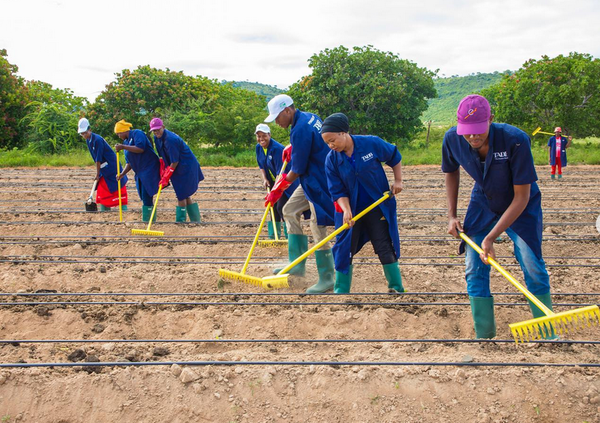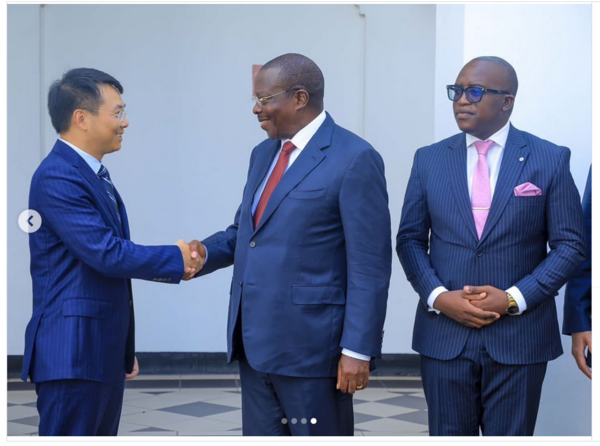NGO WORK
A new wave of land grabs strikes Tanzania
Published
1 year agoon
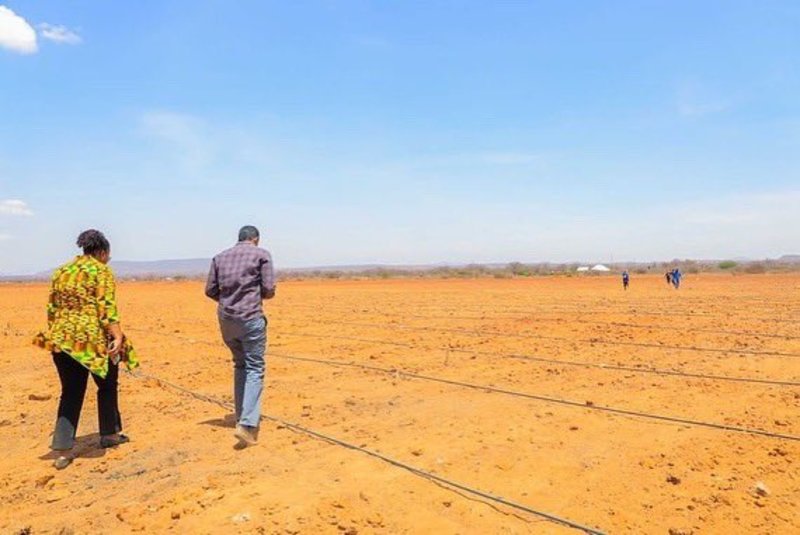
Tanzania was one of the most heavily targeted countries of a huge scramble for farmland around the world that followed the food and financial crises of 2008 and that was supposed to help solve global food insecurity. The large farm projects, which became a strategy of choice for donors, multinational corporations and some governments, ultimately caused more harm than good by exacerbating land conflicts and destroying people’s livelihoods. In Tanzania, most of these projects soon collapsed and caused miseries for small farmers. But, despite this tragic record, Tanzania’s government is pursuing another round of foreign agribusiness investment by turning hundreds of thousands of hectares of lands into block farms where corporations will produce export crops, not local foods for the people. With China looking to Tanzania as a new supply source for soybeans, the stage could be set for another wave of land grabs, with dire consequences for Tanzania’s small farmers.
It should have been the death knell for large-scale agribusiness in Tanzania. In early 2019, Kilombero Plantation Limited (KPL), the much-hyped, showcase model of the Southern Agricultural Growth Corridor for Tanzania (SAGCOT), went bankrupt.[1] Despite receiving tens of millions of dollars from foreign development banks and investors, the owner of this large-scale rice farm, a UK-based private equity fund, was unable to pay off its debts and the farm was seized by its creditors. Tanzania’s NMB Bank spent the next two years trying to find a buyer, before the government stepped in to acquire it, and then handed it over to the Army to manage.[2]
The 5,818-hectare rice farm was once highlighted by the G7 and the World Economic Forum as proof that large-scale agribusiness could drive Africa’s agricultural growth. But, with the firm in financial ruin, Kilombero Plantations Limited became instead a stark example of Tanzania’s misguided and failed decade-long drive to increase foreign investment in agriculture.
The collapse of Kilombero Plantations was the latest in a long list of failed agribusiness projects in Tanzania, ushered in by a series of donor-funded programmes under the Presidency of Jakaya Kikwete (2005-2015).[3] These programmes– beginning with Kilimo Kwanza in 2006, then SAGCOT in 2010, and finally Big Results Now in 2013– aimed to make large areas of land available to companies, on the assumption that these would make Tanzania an export powerhouse, ensure food security, and most importantly, bring employment, technology, services (training, inputs, machinery, etc) and new markets for the small farmers living near to the farms. SAGCOT alone claimed it would bring in USD 2.1 billion in private sector investment.[4] But after 10 years, very little of this promised investment had materialised, and, of the few projects that got off the ground, most had failed, leaving a legacy of problems for the affected communities to deal with.[5]
By the time of the Kilombero Plantations bankruptcy, Tanzania’s then President, Dr John Pombe Magufuli, had grown frustrated with the approach of his predecessor, and had begun charting a new course. He scrapped the Big Results Now programme and began winding down SAGCOT. His government cancelled funding to a SAGCOT “catalytic fund” that had been created through a World Bank Loan– a clear sign of the changed approach.[6] And he also launched a process to revoke dozens of land titles from companies that had failed to bring lands under production.[7]
But in 2021, Magufuli died, and his successor, his Vice-President, Samia Suluhu Hassan, quickly reversed direction. Under the leadership of her Minister of Agriculture, Hussein Bashe, large-scale agribusiness once again became the government’s priority and the doors were swung wide open for domestic or foreign companies wanting large areas of farmland. SAGCOT resumed its central role, with an expanded mandate to establish corridors across the whole country.[8] Hundreds of millions of dollars of public funds have been budgeted for large-scale irrigation and, through a programme that claims to support the involvement of youth in agriculture, hundreds of thousands of hectares of lands across the country are being cleared and consolidated into “block farms” and offered to companies for the production of specified export crops.[9]
Betting on tomorrow
The centrepiece of President Samia’s renewed effort to allocate lands to agribusiness companies is a programme called Building a Better Tomorrow (BBT).[10] Under this programme, the government designates and clears large areas of land for conversion to large-scale, irrigated agriculture, called “block farms”, in which a selection of youth and women, mainly from urban cities and graduates from universities, are allocated small plots of between 1 – 10 acres (0.4-4 ha), while local communities are sidelined. In July 2023, President Samia announced that all 52,000 youth who had applied to join the army that year would be drafted into the BBT programme.[11]
Each BBT block farm is to produce a specific crop for a company that co-invests in the operation. In the model, the company will supply the inputs and machinery and purchase all of the production. It can also get a 99-year lease on a portion of the block farm area to farm the lands itself. The BBT farmers meanwhile get 33 to 66 year titles, and, while they can transfer the titles to someone else, they cannot change the conditions of their contract. They will thus be at the mercy of the company controlling the farm from whom they must buy all of their inputs and to whom they must sell all of their harvests.[12]
President Samia has stated that 690,000 hectares around the country have already been identified for block farms, but there is no publicly available information about the exact locations. In January 2023, the government published a first call for investment proposals for various BBT block farms on 65,000 hectares in the regions of Dodoma, Mbeya, Kagera and Kigoma. Interested companies could apply for lands of between 400 to 8,000 hectares on each block farm.
In March 2023, the first BBT farm was officially opened in the Chamwino district of Dodoma Region. The Minister of Agriculture, Hussein Bashe, explained that an initial 162 hectares were allocated for training 812 youth selected to participate in the project.[13] Despite access to land being an issue for the local communities, most of the youth selected for the project are not local and have little of any agricultural experience. The farm in Dodoma is supposed to eventually extend to 11,453 hectares and will produce grapes for a wine processing plant. But there has been no public mention of any private investor as of yet.
Prudence Lugengo, a policy specialist with SAGCOT, says lands for another BBT farm have also been allocated in the regions of Katavi and Tabora. In this case, the BBT farm is said to be a massive, 120,000-hectare block farm that will produce wheat for the Tanzanian agribusiness company MeTL, owned by the Tanzanian billionaire and former politician Mohammed Dewji. According to Lugengo, MeTL will acquire 50,000 hectares for itself and the remaining 70,000 hectares will be allocated under the BBT programme for youth. MeTL did not respond to our requests for confirmation of the deal, and it is not clear how Dewji will be financing this project.[14] It should be noted that just a few years ago, Magufuli’s government revoked several titles for large areas of farmland belonging to Dewji because of his failure to bring them into production.[15]
Together with the aforementioned issues, the odds and prospects of the glorified BBT programme are questionable in its very early days, with allegations surfacing within the corridors of social media, accounting on the government’s failure to live and fulfil its promises. As of late January 2024, a letter alleged to have originated from one BBT youth participant was widely circulated on social media, asserting that the government had failed to allocate to them the promised 5 hectares of land, individually, (let alone the 10 hectares originally promised) and so has the government failed to establish irrigation facilities. Instead, 260 of the youth who had passed through the training programme were sent to a 600 acres farm area in Chinangali, where they are farming without irrigation or decent housing, and are producing sunflower under an off-take arrangement with a company, without any guarantee of a land allocation for themselves.[16]
Zambia has pursued a programme since 2006 to establish block farms of 100,000 hectares in each of its 10 provinces. Although the government failed to attract any “credible investors”, in 2023 it hoped to revive the programme through a USD 300 million loan from the World Bank for the construction of infrastructure at the farm sites.[17] The Government of Malawi also launched a block farm programme in 2020, consisting of a number of what it calls “mega farms” of around 5,000 hectares each. It too has struggled to attract significant private sector investment.[18]
A new soybean frontier for China?
Despite the pomp surrounding the roll-out of the BBT programme, there is little evidence of much interest from the private sector. The only significant funds that have so far been committed are from the government, which has pledged USD 1.4 billion over the next 10 years, and from a similar batch of donors to those who supported the SAGCOT era investment drive. These include the World Bank (USD 300 million), the African Development Bank (USD 100 million), AGRA (USD 40 million), the International Fund for Agricultural Development (USD 60 million) and USAID (USD 100 million).[19]
Soybeans could be an exception, and in particular, soybeans destined for China. Due to the growing tensions with the US and the war in the Ukraine, China is increasingly concerned about its dependence on these two countries for soybeans (as well as maize), and it is now looking to Africa as an alternative source of supply. Tanzania is one of three African countries that China has identified for the development of soybean exports. In 2020, it passed a phytosanitary measure to allow the import of soybeans from Tanzania and the first shipment was made the following year by China’s largest grain trader, COFCO.[20] In November 2022, President Samia signed a Comprehensive Strategic Cooperative Partnership with China during her visit to Beijing in which soybean exports were specified as an initial priority and a task force was created for implementation.
At the moment, Tanzania only produces 200,000 tonnes of soybeans per year– a mere drop in the bucket compared to China’s annual import of 100 million tonnes, most of which goes to produce animal feed and vegetable oil. Production would have to increase dramatically for Tanzania to become a significant supplier.
China’s largest seed company, Yuan Longping High-tech Agriculture, has been tasked with pursuing this potential. The company is part of the CITIC Group, China’s largest state-owned conglomerate, and it is already playing a key role in advancing China’s control over soybean and maize production in Brazil, China’s most important supplier. After entering Brazil in 2017, Longping quickly became one of the top seed companies in the country. Now Longping is looking to do the same in Tanzania, as China seeks to export the Brazilian model to Africa.
“We want to take Longping’s expertise in maize and soybean seeds to [Tanzania and Ghana]. There, the climate conditions, temperature and altitude are similar to those in Brazil and very favourable for the development of agriculture. We want to be facilitators of this process, teach them how to plant and produce grains so that in the future they will also be suppliers to China”, says Aldenir Sgarbossa, President of Longping’s Brazilian operations.[21]
In 2022 and early 2023, Longping sent delegations to Tanzania to secure political support and to identify areas for soybean production. Tests of its soybean varieties from Brazil are now underway, as well as for its hybrid maize and sorghum seeds, which will be grown in rotation with the soybeans, as is done in Brazil. While these initial varieties are not GMOs, Longping has several GMO varieties under testing and awaiting approval for commercial sale in China, and it has already had some of its GMO maize varieties approved for human consumption.
Longping says it will invest over USD 213 million (500 billion shillings) in a first phase for developing soybean production in the south of Tanzania and will also invest in the improvement of grain exporting facilities at the port of Dar es Salaam.
The company’s operations in Tanzania are being run through a joint venture with a Tanzanian businessman, the media mogul Joseph Kusaga, owner of Clouds Entertainment Group, along with his wife, Juhayna Kusaga. Longping also has high level support from within the Ministry of Agriculture, from SAGCOT and even from former President Kikwete, who has been using his position as a director of AGRA to encourage Tanzanian farmers to plant soybeans for export to China.[22] As evidence of Longping’s political connections, the government gave it special clearance to reduce the required time for testing of its seeds from five years to five seasons, making it possible for Longping to start large-scale production in 2024.[23]
The Tanzanian government is also making lands available for the company. An initial area of 53,000 ha is said to have been allocated as a BBT farm in the Chunya District of Mbeya Region. Longping Tanzania says it has “acquired” 10,000 ha of these lands for its own farm and claims to have already started farming, while the remaining 43,000 ha will be allocated to participating farmers who the company will supply with seeds, fertilisers, and machinery.[24] The farmers must sell their harvests exclusively to Longping Tanzania, which will then export to China, where the Chinese government has offered a guarantee to purchase all of the soybeans that are produced.[25]
Longping’s ambitions extend beyond this BBT farm. The company is also setting up block farms with the recently established Soybean Association of Tanzania.[26] According to the association’s chairman, Marcus Albany, these block farms will bring together a group of farmers, with each farmer contributing an area of land (minimum is 2 hectares and maximum is 10% of the entire block farm) to establish one large farm that will be managed as a group. The farm will operate under a contract with Longping, which stipulates the amount the farmers must pay Longping for the supply of inputs and machinery and the price they receive for the sale of their harvests, with the amounts renegotiated each season. As with the BBT farms, a farmer can transfer their share of the lands to another farmer, but that farmer must then take on the same conditions agreed to with Longping.
The Soybean Association of Tanzania and Longping have already formed one block farm in Morogoro Region that is presently at 5,700 hectares and they expect it to eventually reach 10,500 hectares. They are in the process of setting up another one in Lindi Region on 10,500 hectares, one in Katavi starting at 202 hectares and one in Sumbawanga that is still in the process of negotiation with a private landowner. Albany says that, although his association is not made up of youth, the government is also trying to get them to be part of the BBT farm in Mbeya.
Other Tanzanian businessmen are also moving quickly to acquire lands for soybean production. The newly established company Jadeja Farming is developing a 2,800-hectare soybean farm on contested lands at Sumbawanga district in Rukwa Region.[27] The company has ties to Jatu PLC, a company listed on the national stock exchange that claimed to be pursuing block farms but that ended up defrauding its shareholders of over USD 2 million.[28] In the northern region of Kagera, a Tanzanian company called Global Agency is building a massive 21,000 ha maize and soybean farm. Despite its past legal and financial troubles, Global Agency has received substantial funding from the Tanzania Agricultural Development Bank (via a loan from the African Development Bank), as well as political support from high level members of President Samia’s party.[29]
Moreover, Longping is not the only Chinese company investing in soybean production in Tanzania. In the coastal region of Kilwa, a company called Pan Tanzania Agriculture Developments is pursuing a 25,000 ha large-scale cassava and soybean farming project, on lands that were previously part of a much contested biofuels project that went bust. Pan Tanzania Agriculture Developments is connected to the Chinese company, Beijing Chaoliang (translated as “Best Agro” or “Super Grain”), as well as Hunan Construction Engineering Group and the Djibouti Silk Road International Bank.[30] In July 2022, nearly 25,000 ha were converted from village lands to “Export Processing Zone” lands, opening the possibility for Pan Tanzania Agriculture Developments to acquire them on a long-term lease.[31]
Land conflicts will get much worse
The combination of China’s new interest in soybean exports from Tanzania and the Tanzanian government’s revitalised interest in foreign agribusiness investment is creating the conditions for a surge in land grabbing. Land conflicts are already present across the country, not only because of agribusiness projects but also because of deals for mining, wildlife and forest reserves, parks and carbon credit projects that the government is also pursuing. One of these, a “sustainable forestry” project with a company owned by a member of the Dubai Royal Family, involves setting aside eight million hectares of lands for the generation of carbon credits.[32]
The new push for block farms and soybean production adds fuel to a fire that is already running hot. For example, in the Kilosa District of Morogoro Region, tensions over land have simmered for decades between villagers who want to maintain access to lands for food production and businessmen who either use the lands for sisal plantations, rent them out for cash or hoard them and render them unproductive. The villagers finally succeeded in getting the government to intervene during the presidency of Magufuli and many land titles held by these businessmen were revoked. But the lands were not redistributed to the villagers. Instead, they were turned over to the District Councils, which are now consolidating the lands and leasing them out as block farms to so-called “farmer groups” to produce cash crops like sisal on the instructions of the state or are handing them over to businessmen and public agencies, such as Tanzania’s Agricultural Seed Agency.
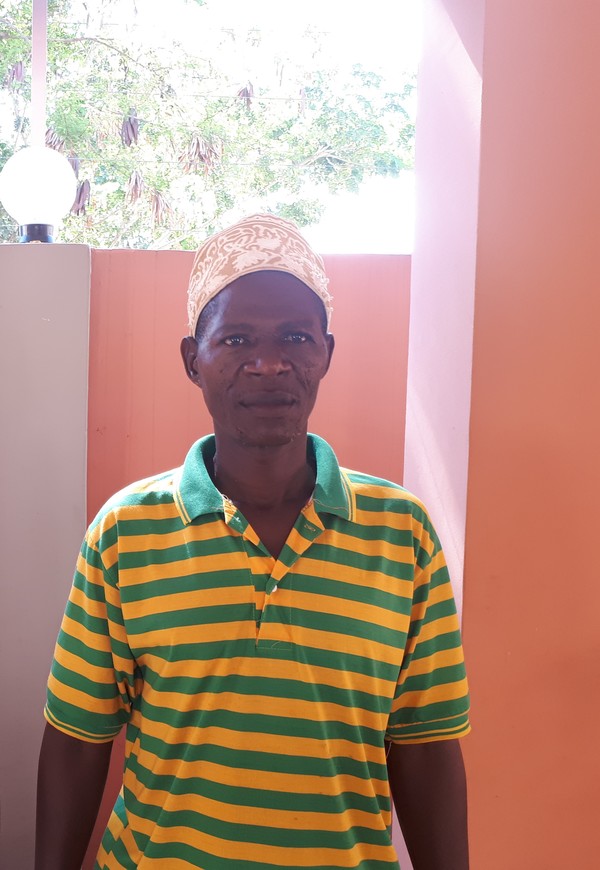
Abdul Tumbo is a farmer from Mvumi village in Kilosa District. He has been repeatedly arrested and imprisoned for farming on lands that his grandparents farmed but that are also claimed by a powerful businessman. The Magufuli government revoked the businessman’s land titles a few years back but the District Council is now trying to organise these lands into a block farm instead of letting Tumbo and the other villagers continue with their farming. The villagers want nothing to do with the block farm. They say the land is theirs and there is no reason why they should pay rent for it. Moreover, they want to produce food for their families and communities, not commodities for companies.[33]
Tumbo points to one neighbouring community where the District Council has pushed ahead with a 325-hectare block farm on lands the local villagers have been farming since 1984 when a sisal estate was shuttered. In December 2022 the villagers planted local maize for food, and shortly after, on the very same lands, the “farmer group” planted sunflowers. Now the District Council has seized the maize harvest and tensions are boiling over.
Across Tanzania, similar conflicts are erupting as the government and businessmen illegally use backdoor channels to transfer large areas of village lands into block farms to produce soybeans and other crops for export. Thousands of small farmers and pastoralists could be displaced from their lands in the process, and many more could lose access to water, as these projects tend to involve the use of large amounts of water for irrigation. The impacts will be felt not only in rural areas, but also in urban centres, as the lands that small farmers now use to produce food for the country will be converted into large-scale farms to produce agricultural commodities for export.
In another example, in 2023, the government, controversially, gave an eviction order to villagers of at least 23 villages in Mbarali District through a government notice (no. 28 of 2008), whose implementation was delayed because of the controversy and uncertainty on the legality and morality of the notice itself. This eviction order affects one of the most productive districts and national food baskets for rice and will affect over 25,000 smallholder farmers in the area. The order is to expand the Ruaha National Park in a World Bank funded project.[34] At present, 852 villagers have taken the matter to the High Court of Tanzania to challenge the eviction order.[35]
The current situation in Tanzania is reminiscent of the ProSavana project that Japan sought to finance in Northern Mozambique a decade ago. That project involved the take-over of 14 million hectares of land in one of the most fertile and densely populated areas of the country to set up large farms and enlist farmers into contract farming schemes to produce soybeans and other cash crops for export to Japan. ProSavana was developed between the Japanese, Brazilian and Mozambican governments behind closed doors, without the knowledge of the affected communities. When these communities became aware of what was going on, they immediately began to organise resistance, with the support of civil society organisations in Mozambique, Brazil and Japan. Despite the powerful forces aligned against them, Mozambican farmers and their allies managed to stop the project, and it was officially terminated in 2020.[36]
This is a critical moment for Tanzania’s small farmers and pastoralists to defend their lands. These food producers are already struggling with a lack of access to sufficient land and water, exacerbated by the climate crisis and the country’s rapidly growing population. They can produce an abundance of nutritious, chemical-free foods to feed the country, and even produce a surplus for export, if the right policies are in place to support their seed systems, provide protection for their lands and water and ensure they have adequate access to markets. Scarce public resources should not be wasted on a failed model of corporate agriculture.
Banner photo: Tanzania’s Minister of Agriculture, Hussein Bashe, visiting a block farm project in Chinangali area, Chamwino, Dodoma District. Source : Twitter (X)
___________________________________
Original Source: Grain
Related posts:
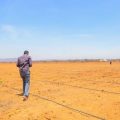
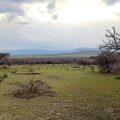 US Luxury Safari Operator Tightens Stranglehold Over Maasai Land in Tanzania
US Luxury Safari Operator Tightens Stranglehold Over Maasai Land in Tanzania
 Could a U.S.–China trade war lead to a new wave of land grabs?
Could a U.S.–China trade war lead to a new wave of land grabs?
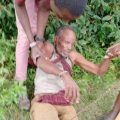 Worldwide Condemnation Over Violence against the Maasai by Tanzania Security Forces
Worldwide Condemnation Over Violence against the Maasai by Tanzania Security Forces
 African bishops demand end to ‘land grabs’ by private companies
African bishops demand end to ‘land grabs’ by private companies
You may like
NGO WORK
Communities Under Siege: New Report Reveals World Bank Failures in Safeguard Compliance and Human Rights Oversight in Tanzania
Published
2 weeks agoon
July 2, 2025
Villagers living in the shadow of Ruaha National Park (RUNAPA) are under siege from a rogue –World Bank-funded paramilitary ranger force. Accountability Now – Tanzanian Communities Shattered by World Bank-funded Tourism Project, a new Oakland Institute report, shines a spotlight on the human toll of the Bank’s ongoing failure to correct the dire crisis it has created.
As previously exposed by the Institute, the Resilient Natural Resource Management for Tourism and Growth (REGROW) project enabled the violent expansion of RUNAPA in Tanzania, resulting in grave human rights abuses, devastation of livelihoods, and planned widespread evictions. These damning findings were confirmed by the Bank’s own Inspection Panel in its September 2024 investigation report. Accountability Now details the severely delayed and deficient action taken by the Bank in response to the blatant violation of its safeguards, which has allowed the cycle of violence and suffering to persist.
“This report is not only a scathing indictment of the Bank’s irresponsible financing and mishandling of the case, but also of the institution’s absence of accountability given its failure to correct its wrongs at every step. The Bank’s management admitted its responsibility for enabling this crisis – and yet, it has turned its back on villagers as human rights abuses and crippling livelihood restrictions continue unabated,” said Anuradha Mittal, Executive Director of the Oakland Institute.
The report documents how the Bank’s funding allowed the government to double the size of RUNAPA by over one million hectares through Government Notice 754 in October 2023 without the consent of those living on this land. This placed over 84,000 people from at least 28 villages at the risk of imminent eviction and resulted in over US$70 million of economic losses for farmers and pastoralists – suffering compounded by killings and violence at the hands of rangers funded by the Bank.
Between 2017-2024, the Tanzania National Parks Authority (TANAPA) rangers were equipped and emboldened by the World Bank, enabling the agency to carry out a brutal campaign against local residents. Communities have endured extrajudicial killings, enforced disappearances, torture, and sustained economic hardship – made possible by the Bank’s lack of oversight.
The World Bank-financed REGROW project was officially cancelled on November 6, 2024. On April 1, 2025, the Bank’s Board of Directors approved an Action Plan (MAP) to address the findings of the Inspection Panel’s investigation into the project. Instead of remedying the harms identified by the Panel and responding to the demands of the impacted communities, the MAP chose to narrowly focus on alternative livelihoods and accepted the government’s dubious promise that villages consumed by the park would not be resettled and residents could continue grazing, fishing, and farming.
Barely a month later, on April 26, 2025, 27-year-old fisherman Hamprey Mhaki disappeared after being shot by rangers in the Ihefu Basin. On May 7, rangers opened fire on herders in Iyala village, killing 20-year-old Kulwa Igembe, and seizing over 1,000 cattle in another devastating economic blow to herders.
The World Bank made a commitment to work with the Tanzanian government to “support communities in and around RUNAPA in an effort to balance conservation and development, including reducing incidences of conflict and violence in the Park and providing alternative livelihoods.” The latest killings, cattle seizures, and farming restrictions, expose the hollowness of the Bank’s commitment. Several villages have been instructed to relocate – directly contradicting the government’s prior assurances. Though it claims to be supervising the implementation of the MAP, the Bank’s management has entrusted the very government responsible for the violence to investigate it.
“If the core promise to allow daily life to resume for the villagers is not honored, their very survival is at risk. Impacted communities expected the Bank to supervise the MAP. They are appalled by the Bank’s response that the perpetrators of violence will provide them with justice. Given the Tanzanian government’s horrific record of human rights abuses, this is akin to letting the fox guard the henhouse,” Mittal concluded.
The time to deliver redress is long overdue. One impacted villager said, “We are crying for our lands…let us be free. We don’t want to leave and the World Bank should stop the government from taking our lands. Our suffering is directly because of the Bank. Let us be free.”
Source: oaklandinstitute.org
Related posts:

 The World Bank Must Be Held Accountable for Harm Inflicted on Tanzanian Communities by Tourism Project
The World Bank Must Be Held Accountable for Harm Inflicted on Tanzanian Communities by Tourism Project
 World Bank Project Cancelled in a Landmark Victory for Tanzanian Villagers
World Bank Project Cancelled in a Landmark Victory for Tanzanian Villagers
NGO WORK
World Bank-Funded TANAPA Rangers Murder Two Villagers in Ruaha National Park
Published
2 months agoon
May 22, 2025In the last two weeks, TANAPA rangers have killed two villagers within the disputed boundaries of the Ruaha National Park in Tanzania. These murders shatter promises made just a month ago by the Tanzanian government and the World Bank to end ranger violence and allow livelihood activities to continue within the park.
On April 26, 2025, six fishermen were confronted by rangers outside of Mwanjurwa, near Ikanutwa and Nyeregete villages in the Ihefu Basin. As they tried to escape, rangers shot 27-year-old Hamprey Mhaki in the back. It is believed that Mr. Mhaki succumbed to his gunshot wound, as the search party only found a large amount of blood where he was last seen. He remains missing – while his pregnant wife and grieving family search for answers and demand justice.

In another incident, on May 7, 2025, a group of herders and their cattle in the Udunguzi sub-village of Iyala village were attacked by a TANAPA helicopter that opened fire with live ammunition. Eyewitnesses report that Kulwa Igembe, a 20-year-old Sukuma herder, was shot in the chest by one of the rangers on the ground. He died at the scene. Mr. Igembe is survived by his widow and young daughter.
According to Tanzanian media, four TANAPA rangers are being held by the Mbeya Regional Police Force for their involvement in Mr. Igembe’s killing. His body remains at the Mochwari Mission hospital, as his family has refused to proceed with burial until authorities conduct a full and transparent investigation. Furthermore, local sources state that over 1,000 cattle belonging to several herders were seized and impounded at the Madundasi ranger post following the attack. About 500 cattle have been reclaimed after herders paid TSh100,000 per head [US$37] in fines – delivering a substantial financial blow.
The Bank’s REGROW project, now cancelled, built the enforcement capacity of the rangers who committed these murders. In the 2024 investigation by its Inspection Panel, the Bank conceded that by “enhancing TANAPA’s capacity to enforce the law,” the project “increased the possibility of violent confrontations” between rangers and villagers. The Panel found the Bank to have failed to adequately supervise TANAPA and ignored rangers use of “excessive force,” in violation of international standards. Already over the course of the REGROW project, at least 11 individuals were killed by police or rangers, five disappeared, and dozens suffered physical and psychological harm, including torture and sexual violence.
“The murders of Mr. Igembe and Mr. Mhaki make it painfully clear that the Tanzanian government has no intent to end atrocities against local communities for tourist revenue. These brutal actions not only constitute abject crimes but are also a blatant violation of the commitments the government made to the World Bank,” said Anuradha Mittal, Executive Director of the Oakland Institute. “The Bank created a monster in TANAPA and must be held accountable along with the rogue ranger force,” Mittal added.
In its April 2, 2025 press release, the World Bank stated that “The Government of Tanzania has committed to implementing the MAP [Management Action Plan], and the World Bank will support and supervise its implementation.” The Action Plan is based on the premise that the government will honor its now broken promise that there will be no resettlement and villagers can continue their livelihood activities, like grazing and fishing. Iyala village, where Mr. Igembe was killed, is one of the five villages consumed by the October 2023 expansion of Ruaha National Park.
The Bank also committed to addressing violence by TANAPA rangers through a grievance mechanism and trainings on “relevant good international practice in protected area management.” Unfortunately, the Oakland Institute’s warning to the Bank’s officials, that given the extent of TANAPA’s human rights abuses, these measures would fail in preventing future harms, has come true.
“The violence hasn’t stopped. Villagers are being killed, their cattle stolen, their lives destroyed. Local communities are desperate for the world to listen. The Oakland Institute joins them in demanding that the World Bank take responsibility and act now. Every day of silence costs lives. The victims and their families deserve justice, truth, and the chance to live without fear,” concluded Mittal.
Source:The Oakland Institute
Related posts:

 The World Bank Must Be Held Accountable for Harm Inflicted on Tanzanian Communities by Tourism Project
The World Bank Must Be Held Accountable for Harm Inflicted on Tanzanian Communities by Tourism Project
 Campaign Victory: World Bank Suspends Funding for REGROW, a Conservation Project Responsible for Evictions & Human Rights Abuses in Tanzania
Campaign Victory: World Bank Suspends Funding for REGROW, a Conservation Project Responsible for Evictions & Human Rights Abuses in Tanzania
 URGENT ALERT: Tanzanian Government on a Rampage Against Indigenous People
URGENT ALERT: Tanzanian Government on a Rampage Against Indigenous People
NGO WORK
Defending rights and realising just economies: Human rights defenders and business (2015-2024)
Published
2 months agoon
May 22, 2025
Over the past decade, human rights defenders (HRDs) have courageously organised to stop corporate abuse and prevent business activities from causing harm – exposing human rights and environmental violations, demanding accountability, and advocating for rights-respecting economic practices. From Indigenous Peoples protecting forests from mining activities to journalists exposing health and environmental harms related to logging to workers advocating for better conditions in the garment sector, HRDs are at the forefront of creating a more equitable, sustainable and abundant world where rights are protected, people and nature thrive, and just economies can flourish.
Every one of us has the right to take action to protect our rights and environments and contribute to creating a more just and equitable world, and yet those who do often face great risk. Businesses have the responsibility to respect human rights, including the right of all people to defend human rights. When companies fail to listen to HRDs, they lose important allies – people and groups fighting for transparency and accountability, and against corruption, which are all essential elements of an open and stable business operating environment. With authoritarianism on the rise, the imperative of realising a just global energy transition, and deepening inequality around the world, the role of business has rarely been so important – especially as HRDs pressing for rights-respecting corporate practice face increasing challenges.
From January 2015 to December 2024, the Business & Human Rights Resource Centre (the Resource Centre) recorded more than 6,400 attacks across 147 countries against people who voiced concerns about business-related risks or harms. This is close to two attacks on average every day over the past ten years. In 2024 alone, we tracked 660 attacks.

Civic space – the environment that enables all of us to organise, participate, and communicate freely in our societies – has also continued to deteriorate over the past decade. According to Civicus, only 3.6% of the world’s population currently lives in countries with open civic space, where citizens and civil society organisations are able to organise, participate and communicate without restrictions. In every region, governments have abused their power to limit the civic freedoms of people advocating for responsible business practice by detaining journalists, passing restrictive legislation (such as foreign funding bills and critical infrastructure laws), criminalising and prosecuting HRDs, and using violent force at protests, among other actions.
This is harmful for business. Civic space restrictions create an ‘information black box,’ leaving companies and investors with gaps in knowledge about potential or actual negative human rights impacts, which can lead to legal, financial, reputational and other risks. Democracy and full enjoyment of civic freedoms are central to addressing the key challenges humanity faces and to sustainable economic growth – some economists have found that democratisation causes an increase in GDP per capita of between 20% and 25%. In addition, under the UN Guiding Principles on Business and Human Rights (UNGPs) and subsequent guidance, business actors also have a responsibility to respect human rights, which includes engaging in robust human rights due diligence that identifies and mitigates risks to civic freedoms and HRDs.
In our current context of continued erosion of democracy, deregulation, backlash against environmental, social and governance (ESG) concerns, increased conflict, and the weaponsation of both law and technology against human rights defence, HRDs remind us to transcend polarisation and persist in realising a more just and abundant future for us all. Key wins over the past decade include a legally binding instrument to protect environmental defenders, regulations to curb strategic lawsuits against public participation, and important victories advancing corporate accountability following advocacy and judicial efforts. Representatives from Indigenous communities have shared a powerful vision for a rights-respecting energy transition – an essential framework for the future. They are innovating, at times together with progressive businesses, to bring about transformative new business models designed to deliver shared prosperity in alignment with Indigenous Peoples’ self-determined priorities.

Between January 2015 and December 2024, the Resource Centre documented more than 6,400 cases of attacks globally against HRDs challenging corporate harm. These attacks were against Indigenous Peoples, youth leaders, elders, women defenders, journalists, environmental defenders, communities, non-profit organisations and others, negatively affecting tens of thousands of people.
This is just the tip of the iceberg. Our research is based on publicly available information, and given the severity of civic space restrictions in some countries and security concerns, many attacks go unreported. In addition, governments are largely failing in their duty to monitor attacks. In countries and regions where few attacks are documented, this does not mean that violence against defenders is nonexistent, but rather that the information is not accessible. Learn more about our research methodology.
Restrictions on civic space helped to facilitate these attacks. Other drivers included weak rule of law and unaccountable governance, economic models focused on profit maximisation through unsustainable resource extraction, racism and discrimination, and lack of consultation with potentially affected stakeholders.
“I routinely hear from Indigenous defenders working in isolated, remote or rural areas that businesses and governments do not consult with them properly – and that their right to give or withhold their free, prior and informed consent for activities negatively affecting their lives or their territories is either manipulated or ignored. Some attacks are committed by agents acting for businesses, others by government authorities and businesses acting together.”
– Mary Lawlor, UN Special Rapporteur on Human Rights Defenders

Latin America and the Caribbean and Asia and the Pacific have consistently been the most dangerous regions for HRDs raising concerns about corporate harm, accounting for close to three in four (71%) attacks in the past decade. Africa follows with 583 instances of attacks – close to a third of these occurred in Uganda.
In Latin America, the majority of attacks are concentrated in six countries that account for 35% of all attacks globally – Brazil (473), Mexico (455), Honduras (418), Colombia (331), Peru (299) and Guatemala (256). Despite comprising only 0.1% of the world’s population, 6.5% of attacks took place in Honduras. In Asia, the highest number of attacks occurred in the Philippines (411), India (385), Cambodia (279) and Indonesia (216).
Another trend is an increase in attacks in the United Kingdom, where 91% of attacks have been judicial harassment (arrests, criminal charges and SLAPPs). Attacks in the UK notably increased from seven in 2022 to 21 in 2023 – the same year the UK Government’s Public Order Act, which significantly increased the police’s power to respond to protests, came into force, undermining freedom of expression, peaceful assembly and association. Attacks further increased in 2024 to 34. Almost all of these attacks were against people raising concerns about the fossil fuel sector.


Attacks target individuals, organisations and communities, causing physical harm, draining resources and obstructing human rights work. They can also have a chilling effect on civic space and weaken the social fabric vital for resista nce, community cohesion, and an inclusive and peaceful society. In addition to harming physical security, attacks can also negatively affect HRDs’ mental, emotional and economic well-being.
nce, community cohesion, and an inclusive and peaceful society. In addition to harming physical security, attacks can also negatively affect HRDs’ mental, emotional and economic well-being.
Since 2015, the Resource Centre has tracked 5,323 non-lethal attacks on HRDs challenging corporate harm.Through our research and collective work with the ALLIED Coalition, we have also identified numerous cases of escalations and cyclical attacks against HRDs where threats and judicial harassment precede physical violence.
Escalation of attacks: Tumandok Peoples’ opposition to dam project
Co-authored with ALLIED and ANGOC
The Tumandok People are an Indigenous group whose ancestral lands in the Philippines have been targeted for numerous private and public development projects, driving ongoing conflict for the community. Community members have actively opposed the Jalaur River Multipurpose Project (JRMP) II infrastructure project, which includes the construction of a dam that would displace Indigenous villages and proceed without their FPIC. Daewoo Engineering & Construction Co. Ltd was awarded the construction contract and the project is supported by Export-Import Bank of Korea.
Numerous attacks have been carried out against community members who voiced opposition to this project. This cyclical violence against the Tumandok is reflected in data from the Asian NGO Coalition for Agrarian Reform and Rural Development (ANGOC), ALLIED and other sources.
We invited Export-Import Bank of Korea and Daewoo E&C to respond. Export-Import Bank’s full response to the killing of HRDs in December 2020 is available here. Daewoo E&C did not respond.
Killings and disappearances
Over the past decade, we documented close to 1,100 killings of HRDs who bravely spoke out against corporate harm. In 2024 alone, we recorded the murders of 52 people.
We commemorate the lives, courage and vital work of these HRDs and their communities. While governments have a duty to investigate these murders, the majority of attacks – both lethal and non-lethal – go uninvestigated and unpunished, fostering a culture of impunity that only emboldens further violence.
Indigenous defenders are particularly at risk. Close to a third (31%) of those killed were Indigenous defenders. Most of the killings of Indigenous defenders occurred in Latin America, as well as the Philippines.
We also tracked 116 abductions and disappearances, which leave families and communities bereft, in the dark as to the safety and whereabouts of their loved one. Most took place in Mexico and the Philippines.
Disappearence of two defenders in Mexico
Co-authored with Global Rights Advocacy
The mining sector is the most dangerous sector for HRDs in Mexico. Over the past decade, a quarter of attacks were against HRDs raising concerns about mining; 40% of those attacks were killings. In the coastal mountains of Michoacán, there is powerful resistance by Indigenous Peoples to mining, amidst a generalised atmosphere of violence. Indigenous Peoples are defending their territories against private interests and organised crime, facing criminalisation, persecution, aggression and killings.
Read full report: Business & Human Rights Resource Centre
Related posts:

 Attacks fueled by governments’ double standards fail to deter human rights defenders
Attacks fueled by governments’ double standards fail to deter human rights defenders
 Human rights defenders & business in 2022: People challenging corporate power to protect our planet.
Human rights defenders & business in 2022: People challenging corporate power to protect our planet.
 Human rights defenders show remarkable courage in the face of attacks and killings – new report
Human rights defenders show remarkable courage in the face of attacks and killings – new report
 #COP27: HUMAN RIGHTS ADVOCATES URGE PARTIES TO INCREASE RECOGNITION AND PROTECTION OF ENVIRONMENTAL AND LAND DEFENDERS.
#COP27: HUMAN RIGHTS ADVOCATES URGE PARTIES TO INCREASE RECOGNITION AND PROTECTION OF ENVIRONMENTAL AND LAND DEFENDERS.

A land rights defender and his wife have been arrested, charged, and sent to prison.

Land Grabbing Crisis Escalates in Uganda: Mayiga Urges Citizens to Secure Land Documents

Seizing the Jubilee moment: Cancel the debt to unlock Africa’s clean energy future

Activism on Trial: Despite the increasing repressive measures, Uganda’s EACOP protesters are achieving unexpected victories in the country’s justice systems.

A decade of displacement: How Uganda’s Oil refinery victims are dying before realizing justice as EACOP secures financial backing to further significant environmental harm.

Activism on Trial: Despite the increasing repressive measures, Uganda’s EACOP protesters are achieving unexpected victories in the country’s justice systems.

Govt launches Central Account for Busuulu to protect tenants from evictions

Communities Under Siege: New Report Reveals World Bank Failures in Safeguard Compliance and Human Rights Oversight in Tanzania

Innovative Finance from Canada projects positive impact on local communities.
Over 5000 Indigenous Communities evicted in Kiryandongo District
Petition To Land Inquiry Commission Over Human Rights In Kiryandongo District
Invisible victims of Uganda Land Grabs
Resource Center
- LAND GRABS AT GUNPOINT REPORT IN KIRYANDONGO DISTRICT
- RESEARCH BRIEF -TOURISM POTENTIAL OF GREATER MASAKA -MARCH 2025
- The Mouila Declaration of the Informal Alliance against the Expansion of Industrial Monocultures
- FORCED LAND EVICTIONS IN UGANDA TRENDS RIGHTS OF DEFENDERS IMPACT AND CALL FOR ACTION
- 12 KEY DEMANDS FROM CSOS TO WORLD LEADERS AT THE OPENING OF COP16 IN SAUDI ARABIA
- PRESENDIANTIAL DIRECTIVE BANNING ALL LAND EVICTIONS IN UGANDA
- FROM LAND GRABBERS TO CARBON COWBOYS A NEW SCRAMBLE FOR COMMUNITY LANDS TAKES OFF
- African Faith Leaders Demand Reparations From The Gates Foundation.
Legal Framework
READ BY CATEGORY
Newsletter
Trending
-

 SPECIAL REPORTS AND PROJECTS2 weeks ago
SPECIAL REPORTS AND PROJECTS2 weeks agoActivism on Trial: Despite the increasing repressive measures, Uganda’s EACOP protesters are achieving unexpected victories in the country’s justice systems.
-

 DEFENDING LAND AND ENVIRONMENTAL RIGHTS3 days ago
DEFENDING LAND AND ENVIRONMENTAL RIGHTS3 days agoA land rights defender and his wife have been arrested, charged, and sent to prison.
-

 SPECIAL REPORTS AND PROJECTS7 days ago
SPECIAL REPORTS AND PROJECTS7 days agoSeizing the Jubilee moment: Cancel the debt to unlock Africa’s clean energy future
-

 MEDIA FOR CHANGE NETWORK7 days ago
MEDIA FOR CHANGE NETWORK7 days agoLand Grabbing Crisis Escalates in Uganda: Mayiga Urges Citizens to Secure Land Documents

